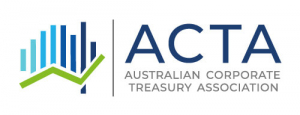NEDs AND NED ASPIRANTS – IGNORE TREASURY AT YOUR PERIL
December 2022
‘NED’ is the acronym for Non-Executive Director. ‘Treasury’ is the collection of services that includes the risk management of cash; working capital; foreign currency, interest rate and commodity price exposures; as well as sourcing, structuring and allocating term debt and equity capital.
This article is about why NEDs and NED aspirants need to pay attention to, and stay abreast of, developments in Treasury. It is not about exploring the developments in Treasury, although some examples are discussed for illustration purposes.
Liability
NEDs must exercise care, diligence and skill in performing their duties because they are exposed both criminally and civilly to errors of omission and commission. This exposure is straightforward to understand in principle, but it is difficult to quantify in practice. A friend of mine, who is a NED on several listed and unlisted Boards, described NED liability vis-à-vis Executive liability as “Executives lose their jobs, NEDs lose their house”. This distinction is important because:
- it is easy to relate to and understand
- wealth is a multiple of income and thus has a debilitating scale multiplier effect
- an issue substantive enough to result in a loss of wealth is also likely to damage reputation, making it extremely difficult to retain existing, let alone develop new, directorial portfolio incomes.
Corporate ambition and resilience
Two key foci for NED’s are enterprise value and enterprise risk. Value accretion requires return on capital to exceed the cost of capital. Capital allocative efficiency requires return to be commensurate with risk, and one of the largest enterprise risks is financial risk. Allocative efficiency and value accretion together ensure that capital goes to the best initiatives and that deployed capital is not just replenished but is grown for future deployment. In other words, value and efficiency are crucial factors in whether corporate strategic ambition is financially sustainable, and in whether corporate resilience is robust to business cycle downturns and adverse economic conditions.
Care, diligence and skill
Since value and capital allocative efficiency are crucial to corporate resilience and ambition, it is incumbent upon NEDs to make informed inquiry into, and to challenge, Executive positions and perspectives on value and capital allocative efficiency. Informed inquiry and challenge allow NEDs to satisfy themselves of the veracity and bona fides of Executive claims, and, just as importantly, to demonstrate that NEDs have exercised a level of care, diligence, and skill in meeting directorial obligations (and thereby limiting exposure to directorial liability).
Obviously, informed inquiry and challenge requires understanding. It is because Treasury is the linchpin for value, capital allocative efficiency and financial risk management that NEDs need to pay attention to, and stay abreast of, developments in Treasury. It is not necessary for NEDs to be expert in Treasury, it is sufficient to know the questions to ask and to distinguish between ‘good’ and ‘bad’ replies to establish whether there is a problem or not. An easy and effective way for NEDs to stay apprised of Treasury developments and to gain access to, and develop, a productive Treasury network, is to join the Treasury association. The Australian Corporate Treasury Association has a library of resources and is happy to introduce members to other members who can help. Even before the investment yields results, the very act of joining the association becomes, in and of itself, prima facie evidence of a NED investing in ensuring care, diligence and skill in the performance of their duties.
Cases in point
Unless you have been in hibernation for the last five years, you will know that ESG stands for Environmental, Social and Governance. ESG has become a very prominent issue over recent years. For example, banks have made it clear that they have little appetite to fund, and likewise insurers have little appetite to cover, ‘dirty’ operations. A company failing to obtain funding and insurance is enterprise risk on existential scale. However, what most people do not know is that Treasury’s unique role as the corporate interface to the financial markets – financial institutions and capital markets – means that Treasury is perfectly placed to set and integrate internal carbon prices into capital allocation; and to evaluate and weigh the financial market’s requirements for, and price of, sustainability-linked financing. In fact, at risk of oversimplification, it was at least coincidental if not cause-and-effect that the threat of not being able to source capital gave real impetus to the corporate take-up of ESG generally.
Speaking of enterprise risk on existential scale, COVID has had, and likely will continue to have for some time yet, a substantial dislocation effect on the economy. For example, the collapse in demand caused by close-downs and the disruption to supply-chains have negatively affected many companies. Again, Treasury is on point for both issues, and has had to pivot markedly in both cash and working capital management. Firstly, to ensure there was sufficient liquidity to pay employees and other essentials (e.g. PPE) during periods of extreme shortfalls in revenue (after all directors sign solvency declarations for statutory accounts and banking covenants). And secondly, to optimise working capital, where the objective was more about securing strategic suppliers and meeting legal obligations to small businesses, than sweating payables to ‘fund’ receivables and inventory.
While ESG and COVID are fashionably front-of-mind for most people, it is easy to relegate other matters to back-of-mind. This is a trap for the inexperienced. Treasury is almost always one of the riskiest functions in business. Transaction sizes are very large; interest rate, foreign currency and commodity markets extremely volatile; and instruments such as derivatives very complex. As a result, potential losses in Treasury can dwarf the loss potential in business operations. This is why Treasury is audited much more frequently than run-of-the-mill functions, and why Board’s provide delegations and mandates to Treasury and receive regular reports from Treasury. Given that Board’s are at the heart of governance, control and reporting architecture for Treasury, it would be difficult for NEDs to claim that they were unaware of Treasury’s elevated risk profile if something went wrong.
In conclusion, NEDs will always be exposed criminally and civilly to errors of omission and commission – this exposure cannot be contracted away. However, NEDs can take active and proactive steps to reduce their exposure by developing the capability to make informed inquiry into, and to challenge, Executive positions and perspectives on the main constituent elements of enterprise value and enterprise risk. Treasury’s pivotal role in value creation, capital allocative efficiency and financial risk management make it the essential function for NEDs to engage with and understand in order to exercise an appropriate standard of care, diligence and skill, and just as importantly, to demonstrate that care, diligence and skill has been exercised at the appropriate standard. Ignorance is not a defence.
About the author
 Kurt Smith is the Vice President and Technical Director of the Australian Corporate Treasury Association; and a Director of Marengo Capital, a corporate advisory company. Kurt has over 25 years’ experience in creating and managing for value in banking, funds management, private equity, fintech, utilities and mining services. Kurt has a Ph.D from the University of Western Australia, and an M.Phil. from the University of Cambridge.
Kurt Smith is the Vice President and Technical Director of the Australian Corporate Treasury Association; and a Director of Marengo Capital, a corporate advisory company. Kurt has over 25 years’ experience in creating and managing for value in banking, funds management, private equity, fintech, utilities and mining services. Kurt has a Ph.D from the University of Western Australia, and an M.Phil. from the University of Cambridge.





